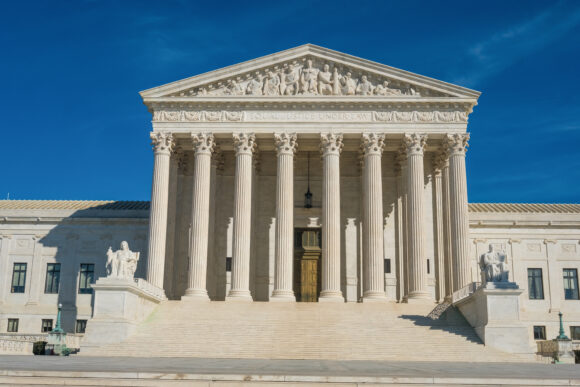
The US Supreme Court on Wednesday imposed road rules to determine when cases challenging legal proceedings by the US Environmental Protection Agency related to air pollution and greenhouse gas emissions should be heard by regional appeal courts or Washington.
The 7-2 decision states that the US court appealed for the district of the Columbia Circuit, and not the 5th US Circuit Court of Appeal based in New Orleans, with a small oil refusal to refuse to exempt the EPA exempt by small oil refiners.
This meant that there was no 5th circuit business decision in 2023 that during the Biden administration, the EPA illegally denied the oil refineries from renewable fuel, which needed to mix Ethanol and other bio -fuel in their fuel.
Nevertheless, the Justice announced in the case of refineries under the same exam, he ruled 8-0 that several energy companies, including the Republican-led states, Oklahoma and Utah, and Pacific, have misconcased the EPA’s “good neighbor” smog control plan in the DC circuit.
In both cases, the Clean Air Act Anti -Pollution Law began to supply the DC Circuit as a special place for the “national applicable” EPA measures and rules cases, but regional federal appeals leave the courts only related to local agency measures.
The Conservative Justice Clearence Thomas, who writes for the majority of the Supreme Court in the case of refineries, used his opinion to make a test map to translate these issues and to determine the appropriate location for cases challenging EPA.
Thomas said that although the law presented matters related to the actions of the local agency in the regional appeal court, they should still be heard by the DC circuit “if the justification for nationwide breadth is the basic explanation of the EPA process and the driver.”
Thomas said the justification would have to provide “basic justification” for the EPA’s move, as it did in the case of six refineries, whose applications for biocare mandate discounts were denied based on the interpretation of the cleared act that the agency had applied to all the geographical location.
After concluding this decision, the decision of the 5th Circuit in favor of refinery on the qualities that the EPA’s actions were local or regional, not national.
The growth and renewable fuel association of bio -fuel groups wrote in a joint statement, “Allowing 12 different circuit courts to make decisions of the SRO (small refinery waiver) will be a fracture and contradictory body of the law, which will create chaos and confusion in the market.”
In a controversial opinion with the Conservative Chief Justice John Roberts, the Conservative Justice Neil Gorsuich said that the majority of the tests were “incorrectly and potentially easy to make the simplest location questions unnecessarily difficult and expensive to resolve.”
However, he agreed with the court’s decision to turn the result of the 10th US Circuit Court of Appeal based in Denver that the case should be transferred to the DC circuit through Oklahoma and Utah.
In this case, there was a rule of the EPA issued in March 2023, aimed at targeting gases, which is an important component of the SMOG, which is from power plants and other industrial sources in 23 Opposition states, whose own projects did not provide the “good neighbor” of the clean air Act.
Oklahoma and Utah were among the 21 states whose air quality projects were rejected by the EPA under this policy. After several cases, including Oklahoma and Utah, who tried to challenge the decision in the 10th US Circuit Court of Appeal based in Denver.
While the tenth circuit case was in the DC circuit as it is related to national policy, Thomas writes that the 10th circuit can hear the case because the EPA proceedings are based on specific factors.
Last year, the Supreme Court stopped the rules of the “good neighbor” of the Biden era, while the lower courts had proceeded. The Trump administration has said it intends to cancel this principle.
Titles
USA pollution
Is interested Pollution?
Get automatic warnings for this title.
